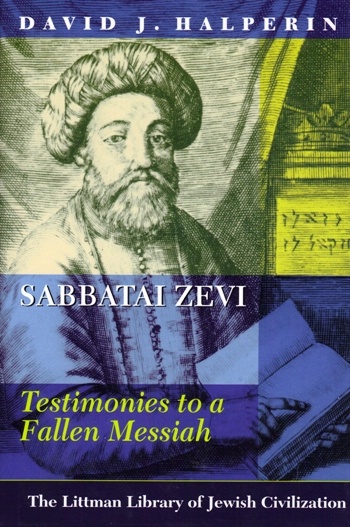The Littman Library of Jewish Civilization
SABBATAI ZEVI
Testimonies to a Fallen Messiah
Sabbatai Zevi (1626–1676)
stirred up the Jewish world of the mid-seventeenth century by claiming to be the messiah, then stunned it by suddenly converting to Islam. His story, and that of the movement he created, is a landmark event in early modern Jewish history and a dramatic example of what can happen when mystic dreams and messianic hopes combine in an explosive mixture.
Now, for the first time, English readers can experience these events through the words of those who lived through them, in lucid and compelling translations by a leading authority in the field.
Of the contemporary 'testimonies' translated by David J. Halperin, three are accounts by Sabbatai Zevi's followers of the life and deeds of their messiah. These are the Najara Chronicle, an eyewitness narrative which Gershom Scholem called 'one of the most extraordinary documents shedding light on Sabbatai's personality'; Baruch of Arezzo's Memorial to the Children of Israel, a sober yet devout biography of Sabbatai written shortly after his death; and the bizarrely fanciful hagiography composed in 1692 by Abraham Cuenque of Hebron.
These 'believers’ narratives' are supplemented by two seventeenth-century letters, pungent in their style and colourful in their details, in which Sabbatai and his followers are described by a contemporary rabbi who detested them and everything they stood for. Finally, a reminiscence of Sabbatai's last days, preserved by one of the most independent-minded of his followers, conveys the enigma of the man that was to haunt the generations.
David J. Halperin
is Professor Emeritus of Religious Studies at the University of North Carolina, Chapel Hill. He trained in Semitic languages at Cornell University, in Near Eastern Studies at the University of California at Berkeley, and in rabbinics at the Hebrew University of Jerusalem. He received his Ph.D. from Berkeley in 1977. From 1976 through 2000 he taught the history of Judaism in the Department of Religious Studies at the University of North Carolina, Chapel Hill, where he was repeatedly recognized for excellence in undergraduate teaching. He is the author of The Merkabah in Rabbinic Literature (1980), The Faces of the Chariot: Early Jewish Responses to Ezekiel’s Vision (1988), Seeking Ezekiel: Text and Psychology (1993), and Abraham Miguel Cardozo: Selected Writings (2001).


